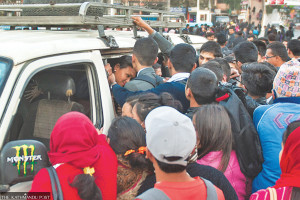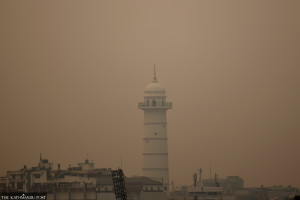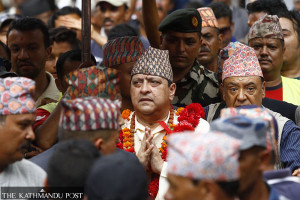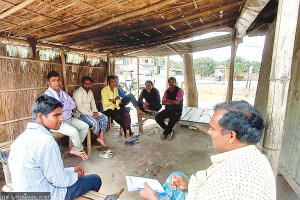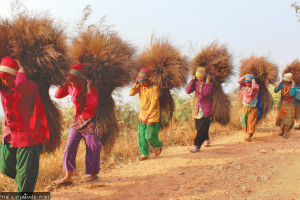 27.12°C Kathmandu
27.12°C KathmanduValley
Private medical schools object to council’s list of ‘fake faculty members’
A day after Nepal Medical Council published a list of faculty members of private colleges, some of them reportedly fake faculties, the private medical colleges on Wednesday
Manish Gautam
A day after Nepal Medical Council published a list of faculty members of private colleges, some of them reportedly fake faculties, the private medical colleges on Wednesday
objected the move, saying the council defamed their teaching faculties.
The council had published a name list of 212 doctors purportedly teaching faculty but in reality are ‘stand-in instructor to evade inspection.’ In the notice, the
council demanded clarification from these medical colleges.
A statement from the Association of Private Medical and Dental College of Nepal, chaired by Dr Bhola Rijal of Om Hospital and Nepal Medical College, has pointed finger at the council itself, claiming that the faculties have been filling up “self-declaration form” during inspections.
“The council also renews the faculty lists each year,” read the statement.
Nepal Medical College was also recently accused of hiring false patients to avoid inspection.
The council’s move to publish the name of faculties, humorously known as ‘Khade Babas’, comes amid growing media and public scrutiny over medical colleges that have been compromising set standards in their academic activities. Khade Babas is a term popular in medical fraternity for the presence of certain faculty in medical colleges only during the time of inspection to convince the authority of their compliance to rules.
The council made public the names of 212 faculty members including 71 from College of Medical Sciences, Bharatpur, 46 from Nobel Medical College, Biratnagar and 36 from Universal Medical College, Bhairahawa.
The council regulations do not allow faculty members to work as full-time in more than one medical school. A majority of these faculty members come from India, and are more from basic-science background including anatomy, physiology and others.
With an acute shortage of these faculties in Nepal, majority of these college resort to hiring these stand-in faculty members during the inspection from university and the council.
“We learn about inspection each year. Interestingly, we see the faculty just twice or thrice or year. Some of them also take class for the entire day for about a month at the end of the year to complete the course,” said a fourth-year student at Janaki Medical College. “The inspection members act as if everything is fine.”
For long, the council has been accused of its bias towards private medical colleges. The lucrative position in council is justified through huge investments by private medical college to run their candidates as members or other office bearers’ position.
There is also an apparent suspicion over functioning of the council as the nine incumbent and two former office bearers have been suspended by Commission for Investigation of Abuse of Authority.
Many experts also view the beans spilled by council as a face saving act. As the talks on its dissolution or limiting its jurisdiction are being discussed, the council has been showing a lot of activeness lately. Recently, it took action against a gynaecologist for conducting foetal sex determination. The council at present has the sole authority to conduct licensing exams, regulate doctors and monitor medical colleges, among other tasks.
Dr Bhagwan Koirala, a member of Mathema committee, said it is because of all these malpractices in medical education that they have tried to limit the number of medical seats to 100.
The report on Health Profession Education Policy recommends limiting the role of the council as well as MBBS student quota to 100.
On the private medical side, in bid to show that they are abiding by the rules, they go to an extent of influencing the political parties and the council’s office bearers. With little investment, the increased student quotas would ensure them handsome returns without meeting the academic standards.
“We should not emulate what other countries have done. Instead if we could loosen the policy a little bit, at least the tradition of brining in these standing faculties would contain,” said Dr Mahesh Khakurel, former vice-president of the council.











